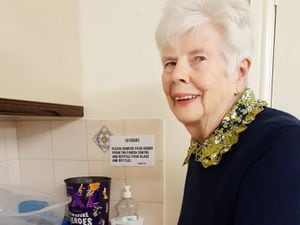Abuse of BAME health workers 'doubles in a year' at Shropshire NHS trust
Harrassment, bullying and abuse against black, Asian and other minority staff at a Shropshire NHS trust more than doubled in one year, according to a survey.

Twenty-nine percent of BAME (black, Asian and minority ethnic) Shropshire Community Health NHS Trust staff said they had encountered hostile behaviour from “patients, relatives or the public” in the last 12 months, compared to 13 per cent the previous year.
The figure also rose slightly for the trust's white staff, going from 20 to 21 per cent.
In a “Diversity and Inclusion Report”, HR manager and diversity lead Fiona MacPherson recommended a number of measures to combat the increase, including a “zero-tolerance” anti-harassment campaign and a “reverse mentoring” programme to raise awareness among senior staff.
The trust – that runs services including hospitals in Bishops Castle, Bridgnorth, Ludlow and Whitchurch, Oswestry Health Centre and the Telford Musculoskeletal Service – employs 1,623 staff, with just under four per cent identifying as BAME.
“It is acknowledged that the start of Covid-19 interrupted delivery of our 2020-21 Equality, Diversity and Inclusion Plan,” Ms MacPherson writes. “However, we have continued to make progress.
“It is recognised that we diverted our short-term objectives to specifically support equality, diversity and inclusion during Covid-19.
“Moving forward we will be raising cultural awareness in the trust, initially focussing on a board-level reverse mentoring programme for BAME staff.”
All NHS trusts have to gather “Workforce Race Equality Standard”, she writes.
BAME staff now make up 3.8 per cent of the trust’s workforce, compared to 2.7 per cent in 2018.
The percentage of staff who reported bullying, harassment or abuse from other staff in the last year fell for both BAME and white workers, going from 27 to 25 per cent and 20 to 19 per cent respectively.
However, Ms MacPherson writes, the rise in hostility from “patients, relatives or the public” leads her to recommend “a zero-tolerance campaign in relation to bullying and harassment”, working with the trust’s whistleblowing advocates, “dignity champions” and BAME staff network.
Her report also recommends working with the network to assess the hiring process and the impact that might be having on candidates’ chances of success, and implementing a “board-level reverse mentoring programme initially focussing on BAME staff”.
“Reverse mentoring” is the practice of pairing older senior staff and executives with younger, more junior partners to help improve their awareness of the modern world and changes in culture.
Ms MacPherson’s report will be discussed by the trust board on Thursday, October 1.





